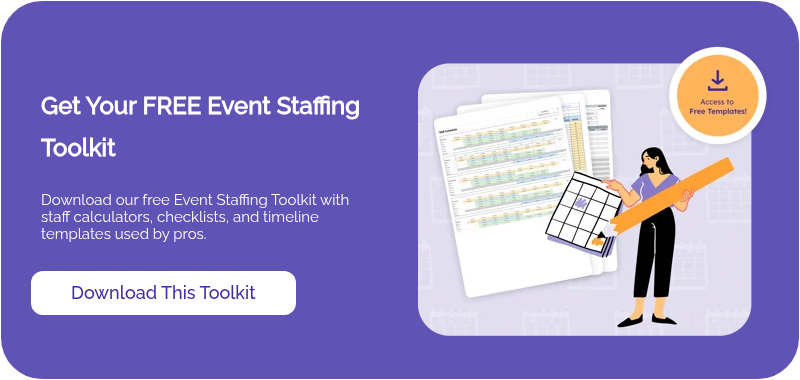The hospitality industry has hit a new normal.
For an industry marked by personalized, people-centric services, it has been swift to invest in technology and automation to satisfy customers and realize profits — everything from digital employee experiences to smart room service.
The continued and accelerated adoption of different automation technologies will only increase as guest expectations undoubtedly evolve, over the coming years. But experimenting doesn’t mean throwing darts. It’s about taking smart risks, which requires analyzing oceans of data to pinpoint patterns and trends in guest and staff behaviors.
So, amid technological upheavals, shifting customer tastes, and operational challenges, what does the future of hospitality look like?
The stats we're sharing point to several critical improvements that need to be implemented in the hospitality industry to restructure its service framework to fit this “new normal.”
Factors such as innovation, buyer transitions, and a greater emphasis on sustainability are all moving this together. If hospitality enterprises want to keep guest experiences at the forefront and achieve long-term success and stability, they will need to seize those new possibilities.
With that said, let's dive into how these insights shape the future of hospitality.
Key Statistics in the Hospitality Industry
In a diverse market such as hospitality, statistics need to be divided into relevant categories, each reflecting its own trends.
Industry Growth
According to the Hospitality Global Market Report 2023, the hospitality industry has experienced impressive growth over the past two-plus years, rising from $4,390.59 billion in 2022 to $4,699.57 billion in 2023, with a compound annual growth rate (CAGR) of 7.0%.
This expansion underscores the industry's resilience and ability to recover from recent challenges. What’s more, the global hospitality market is projected to surge to an astounding $5,816.66 billion by 2027, with a CAGR of 5.5%.
Due to ups and downs in consumer expectations, preferences, and the rapid spread of technology, certain segments within the hospitality industry are experiencing faster growth than others.
The statistics below shed light on these areas:
- The Online Food Delivery Market, including both grocery delivery and meal delivery services, experienced substantial growth during the COVID-19 pandemic. It is projected to maintain its upward trajectory with a compound annual growth rate (CAGR 2023-2028) of 11.47%, reaching a market volume of US$1.79 trillion by 2028. (Statista)
- The Bleisure market —business trips which are extended for leisure purposes – continues to rise. The bleisure tourism market was valued at nearly US$594.51 billion in 2023 and is predicted to grow to $731.4 billion by 2032, with a CAGR of 8.9% from 2023 to 2032. (Future Market Insights)
- This Global Health and Wellness Market is estimated to reach almost 7 trillion U.S. dollars by 2025. (Statista)
Brands & Market Share
While different sectors within the hospitality industry grow at different rates, each business has seen unique changes and growth. This is due to factors like size, services, products, and business practices.
The statistics below emphasize these differences.
- In 2023, Airbnb's market value soared to $92.11 billion, up from $54.13 billion the year before. However, this is a drop from its peak valuation in 2021, when it exceeded a staggering $100 billion. (Statista)
- Airbnb currently commands over 20% of the vacation rental market, but this share seems to be slipping due to rising rental prices and an overwhelming number of property options. (HelpLama)
- Booking.com holds the title of the most valuable travel and tourism brand in the world, boasting a market capitalization of $9 billion. (Companies Market Cap)
- In 2023, Hilton was crowned the most valuable hotel brand globally, with a brand value of $11.7 billion, even though the Wyndham group has the most properties. (Brand Directory)
- It is estimated that an additional 2,707 hotels will open worldwide in 2024. (Statista)
Jobs & Employment in Hospitality & Leisure
The entire travel sector died down during the pandemic, and so did jobs in the hospitality industry. In the years since, the industry has been slow to bounce back.
Many of those workers laid off in 2020 found more reliable jobs with better perks and more sociable hours elsewhere. When should we expect a full recovery?
The statistics answer these questions best.
- More than 2.3 million people work in the hotel industry in the United States alone. (Hotel Tech Report)
- Staff shortages are an ongoing issue for the industry. According to a recent study by Deloitte, 53% of hoteliers are currently at 25-74% of their pre-pandemic workforce, and less than 10% expect to be completely staffed by the end of 2024.
- Hotels will grapple with staffing deficits until 2025 when the industry is expected to make a true adjusted recovery. (STR and Tourism Economics)
Only 28% of hospitality workers are on full-time hours. (Labour Market Insights) - Job openings in the leisure and hospitality sector reached 1.3 million by the end of 2023, reflecting rising demand for workers in the industry. (Bureau of Labor Statistics)
- The pandemic led to increased wages in the hospitality industry, with average profit margins now at 41.3%, enabling businesses to offer higher salaries to attract and retain staff. (The Drinks Business)
For hotels, employment and staffing are particularly consequential as the guest experience can directly impact the hotel’s reputation and revenue.
Technology In Hospitality
What does the future of hospitality technology look like?
From staffing software to payment processing, it’s clear that the future will hold more digital solutions than ever. Where are restaurateurs and leisure leaders looking to invest? What are the pain points that need to be addressed?
Since the right technology can contribute to more revenue, more efficient teams, and better guest satisfaction scores, you want to use technology as effectively as possible. Here are some stats that give you a glimpse into the challenges and trendlines in the hotel technology space:
- According to a HotelTechReport survey, 81% of hoteliers believe it’s very likely that technology will be more important for the success of a hotel business in the next five years.
- 99% of hospitality entrepreneurs think their peers will leverage more technology to run hotel businesses in five years. (HotelTechReport)
- According to Deloitte, 50% of hotels surveyed are adopting new technology, 43% are automating repetitive tasks, and 39% are upgrading existing technology. 57% of hotels invested in at least three new technology types.
- Some leaders do not feel that current options are strong enough to address current needs. For the hotel industry in particular, leading tech adopters surveyed were nearly twice as likely (54%) as others (29%) to say “existing technology is not advanced enough.” (Deloitte)
- Reskilling to address technology’s impact is of utmost importance, as about 40% of hotel General Managers place it among their top three workforce challenges. (Deloitte)
- It’s clear that leaders are encouraged by the expected impact of automation on guests and travelers. 60% of hoteliers expect automation to improve customer experiences. (Deloitte)
- Hotels also see the most value coming from cloud computing in processing guests (29%), managing bookings (26%), and offering personalized recommendations and services (23%) in the next five years. (Deloitte)
Overall, most respondents have a positive outlook on automation and expect it to create new opportunities for workers and enterprises alike.
Top 5 Hospitality Trends & Insights
Though the stats capture the essence of the industry's current stance, they also unearth the most prominent trends taking shape in real time.
These are the key trends that hospitality enterprises must monitor.
1. Workforce Fluctuations
In the past couple of years, the industry's paramount challenge hasn't been luring customers, but rather securing and retaining talent. In response, many hotels have initiated new recruitment tactics, and newcomers tend to negotiate superior working conditions and wages more than before.
Today, many hotels entice their workforce with complimentary or affordable accommodation, elevated pay scales, and reduced peak-hour shifts. Moreover, they channel resources into robust training initiatives, promoting employee motivation and upward mobility within the corporate hierarchy.
Empowered staff members not only improve guest experiences and cultivate a positive reputation but also serve as magnets, attracting other staff to build a cohesive, high-quality workforce.
To manage staff effectively, you can use hospitality staffing software like Workstaff, which makes it easy to fill your shifts with just a few clicks. You can quickly see who’s available to work, gather the right candidates, and create schedules. With instant visibility into all your projects, schedules, and staffing progress, managing staff requirements has never been easier.
2. Artificial Intelligence
In 2023, the standout narrative in tech was the meteoric explosion of generative AI, with ChatGPT emerging as one of the fastest-growing marvels in human history.
The trajectory seems set to continue unabated, as generative AI charts new territories and machine learning steers transformations in the hospitality sector. From intricate data analytics to conversational bots and streamlined marketing automation, the avenues for AI assistance are boundless.
Forecasts indicate a burgeoning presence of AI-driven pricing algorithms in revenue management, eliminating the days of guesswork and tedious research. Instead, room rates will be orchestrated by machine learning algorithms that are constantly analyzing historical and forward-looking market datasets.
3. Sustainability
After reaping low-hanging fruit for a while, hospitality businesses now look for more intuitive ways to execute, measure, and present their sustainability practices. In the food and beverage industry, local sourcing has become the norm in many outlets. In addition, guests are becoming more informed on sustainable practices, such as cooking classes that use entire ingredients and avoid food waste.
Hospitality groups are also embracing sustainable building techniques and are generally striving to adopt a 360-degree strategy that allows them to be sustainable from the first brick up to the operation. Some are even going a step further, seeking to become net positive as exemplified by ‘regenerative tourism’ triumphs.
4. Personalization
When it comes to hospitality, one topic that consistently sparks conversation and anticipation is personalization.
For travelers, this evolution promises more than just a buzzword—it signifies the beginning of truly bespoke travel recommendations, courtesy of generative AI-powered chatbots. In a world saturated with cookie-cutter practices, the average traveler seeks more than just the ordinary—they yearn for experiences that speak directly to their tastes and aspirations. Hyper-personalization is set to be a paradigm shift that leverages technology-driven micro-segmentation to customize every guest interaction in real time.
Traditional constraints such as check-in/check-out times and Food & Beverage (F&B) closing hours are quickly becoming relics of the past. The modern hotel knows whether the guest prefers a guided check-in or a contactless experience, adjusts room settings to your preferred temperature and lighting, or swiftly tailors F&B offerings to your dietary preferences—all with precision and promptness.
5. Automation & Technology
At the heart of innovation is the opportunity for managers and staff to centralize information at all times. These key stakeholders now look for technology to facilitate real-time sharing, better service orientation, and personalization of the guest and staff experience, improving hotel departments across the board.
For example, robotic systems are now being used in many hotels to optimize processes and increase efficiency in back-of-house operations such as housekeeping or F&B outlets, reducing staffing requirements and allowing managers to respond to problems in real-time and with accountability.
Similarly, hospitality leaders are also turning to hospitality staff scheduling software to manage the seasonal highs and lows, using flexible tools to build custom schedules, book staff, track hours, and communicate with their teams. A solution like Workstaff goes the extra mile to create simple shifts or entire schedules and easily book staff based on their skills and availability across multiple locations. You’re also able to easily keep track of hours worked and timesheets with simple-to-use clock-in and clock-out tools.
Reflections On The Future Of Hospitality
What distinguishes the hospitality space is its foundational values — service excellence, personalization, human connection, and the creation of lasting impressions — attributes that are desperately coveted by other industries.
At the same time, with the explosion of the “digital way of life”, the customer journey has become even more multifaceted. This has forced leaders to overhaul not only their corporate and marketing tactics, but also their technology stack to engage, acquire, service, and retain these digitally-enabled travel customers.
Though hospitality has made significant strides in automating front-of-desk and guest experiences, they’ve been dragging their feet to do the same for back-office processes, particularly staffing needs.
However, as hospitality demand continues to recover post-pandemic, businesses have the opportunity to think creatively about staffing. By leveraging a more flexible staffing model based on dynamic demand, hotels can provide pre-pandemic levels of service even if they are short-staffed. Of course, the key to implementing any staffing innovation successfully is to keep an eye on employee engagement and ensure that any change is good for people as well as the business.
With a solution like Workstaff, custom-built for hospitality staffing requirements, managers are able to put together their team at lightning speed whenever they need them, saving hours along the way and earning some well-deserved peace of mind. Using Workstaff, managers can centralize key information like shifts, breaks, availability, remuneration conditions, offers, timesheets, finances, and messaging, while simultaneously filling their shifts in no time.
To find flexible temp staff for your hospitality business, contact our team for a demo.











